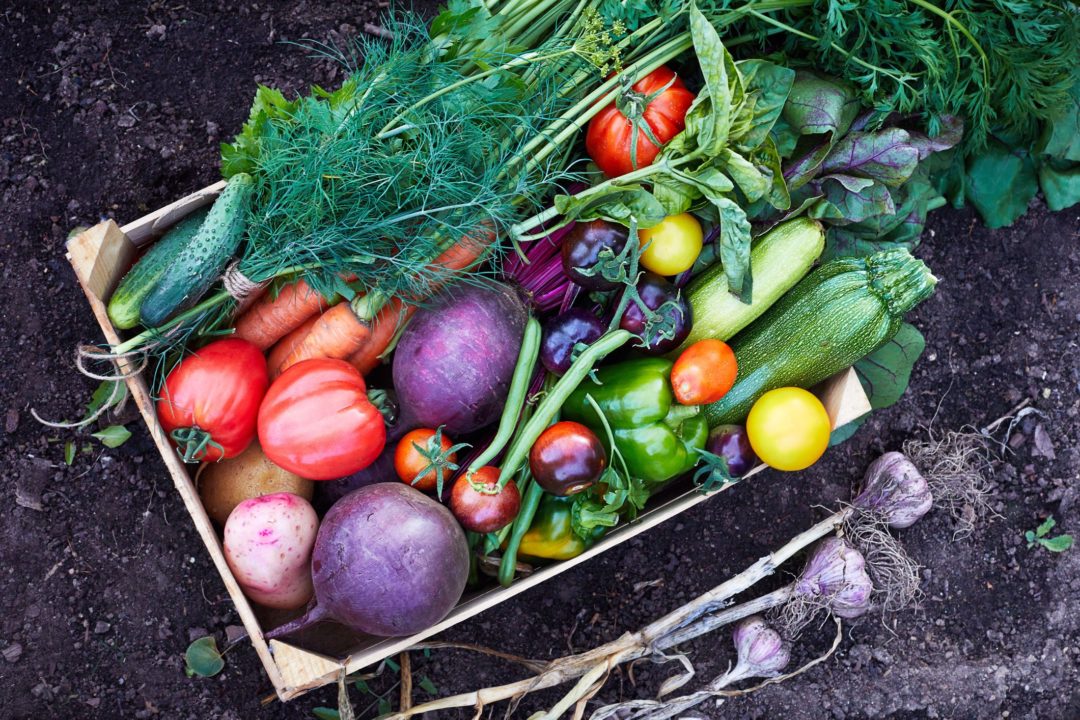
WholeFoods Magazine
More Than Sustenance
The wellbeing of all living systems is interconnected. Food production has untapped potential to restore our collective and planetary health, despite a century of industrial degradation.

Food sustains and nourishes life. It is a fundamental need common to all living things. Consequently, food—how it is produced, distributed and consumed—is a tremendously powerful global force. It is, for many of us, our most intimate daily experience of nature.
However, the modern, industrialized food system has become an antagonist to the soil it grows from and the people it serves. One of humanity's key challenges is to create a food system that sustains all life on earth. This is something those working in the natural food and products network are acutely aware of.
In these early and transformative decades of the 21st century, the connection between agriculture and the environment, between human and planetary health, has emerged in sharp relief, inspiring the evolution of the natural foods movement to reestablish essential connections, regenerate the earth and reinvigorate life.
The growing movement embodies something that many people know intuitively: The wellbeing of all living systems is interconnected and food has the unique potential to restore our collective and planetary health.
Feeding wisdom
Around the time the Non-GMO Project was founded, researchers at the Human Microbiome Project began exploring how our intestinal flora impacts our health. Their work confirmed that gut health is a critical component of immune system function, nutrient absorption and even mood and cognition. From head to toe and around the world, humans rely on a diverse internal microbiome for their wellbeing. We are beginning to understand now that populating and maintaining our gut health depends on an equally complex soil microbiome and the crops which grow from it.
However, modern life has not been kind to microorganisms. Industrial-style agriculture fails to nourish life underground or within. Practices such as monocropping and reliance on synthetic fertilizers and pesticides (including those commonly accompanying GMOs) lead to biodiversity loss below ground and weaker crops above, with less nutrition passed on to eaters. Since the rise of industrialized food production, degraded soil and depleted food has become the norm. Today, diet-related diseases are at an all-time high.
It’s not too late to go where our hearts lead us—to a food system that builds health and sustains life for generations to come.
Feeding discovery
The Nutrient Density Alliance is a newly formed coalition of nonprofits (including the Non-GMO Project), researchers, and brands exploring how nutrient-dense food can improve human and planetary health. It's a thrilling field of discovery because what we don't know about our food far outweighs what we do, and the difference between the two brims with untapped potential.
Researchers now estimate that the vitamins and minerals commonly listed and quantified on product side panels are a minute representation of what makes up our food. The FDA identifies around 150 compounds, comprising less than 1% of what we now know exists. The other 99% is considered nutritional dark matter—a diverse galaxy of bioactive compounds unknown to the public who consumes them daily.
What potential is housed in that 99%? What opportunities have yet to be discovered?
The Nutrient Density Alliance is part of a growing movement to explore how life and land intersect.
Feeding connection
Until recently, humans lived close to the soil. The connection was so intimate that soil microbes proliferated on and in human bodies, setting the foundation for health and wellbeing. Today, city dwellers have little to no interaction with soil. In rural areas, people often have more exposure, but the soil is depleted. The loss of that vital connection inhibits our wellbeing and degrades ecosystems.
Again, food is a crucial element of connection. It is the centerpiece of social bonds, strong communities and many cultural identities. In agricultural areas, saving and sharing seeds helps preserve genetic resources, develop resilient and locally adapted crops, and foster collaboration.
What we consume sustains our bodies, minds, spirits, and the social fabric that gives life meaning. If we increasingly consume empty calories from depleted soils, where does that leave us?
Feeding regeneration
Thankfully, caring for the earth and caring for ourselves are not mutually exclusive. They are two sides of the same coin. Restoring living systems and nourishing the soil is feeding ourselves. Abandoning an extraction mindset focused on commodities and profits frees us to reimagine what we eat and how it is produced, to build a food system that sustains the entire community of life.








